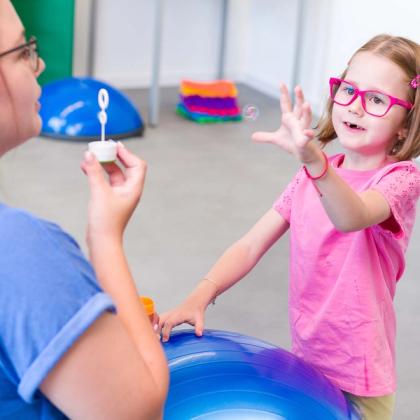This podcast episode is worth 0.43 CPD credits. Upgrade to Pro
Ep 121 – Improving consultations for children with additional needs

Posted 5 Sept 2024
Dr James Waldron, Dr Naomi Fox
Many children have additional needs, and occupational therapy can play an important role in helping these children take part in everyday activities as well as in supporting their families and carers. In this episode, Dr James Waldron talks with Dr Naomi Fox, a paediatric occupational therapist, about ways to improve care and consultations for children with additional needs.
Key references
- RCOT. 2023. https://www.rcot.co.uk/practice-resources/rcot-practice-guidelines/occupational-therapy-and-play-practice-guidelines.
- GOV.UK. 2024. https://explore-education-statistics.service.gov.uk/find-statistics/special-educational-needs-in-england.
- NHS Confederation. 2023. https://nhsproviders.org/media/695836/cyp_survey_briefing-may-2023.pdf.
- Smith AM, Grzywacz JG. Fam System Health. 2014;32(3):303-312. doi: 10.1037/fsh0000049.
- National Autistic Society. 2020. https://www.autism.org.uk/what-we-do/news/coronavirus-report.
- National Autistic Society. 2019. https://www.youtube.com/watch?v=aPknwW8mPAM.
- GOV.UK. https://www.gov.uk/children-with-special-educational-needs/extra-SEN-help.
- Growing Hope. https://growinghope.org.uk/parenttraining/.
Key take-home points
- Additional needs are wide-ranging and can include learning needs, physical needs, mental health needs or anything which is impacting a child’s ability to engage in everyday activities.
- Children may have additional needs around a range of everyday activities, from washing and dressing to eating and play- or school-based activities.
- Occupational therapists help find ways to make these activities easier.
- One in six children in the educational system has additional needs, and that number is growing.
- Growing Hope is a charity that champions accessibility, and provides help and support for children and young people with additional needs.
- Play is a primary occupation for children and is very important for those with high levels of physical disability.
- Play improves children’s health and well-being and is also a tool that can be used to help children engage in therapy.
- A good consultation with a child often involves an element of play, and this can be built into primary care.
- There are frameworks for play from the Royal College of Occupational Therapists and NICE.
- NICE guidance on autism spectrum disorder states that psychosocial interventions should consider play-based strategies and include techniques to expand interactive play.
- NICE guidance on social and emotional well-being in the early years states children’s readiness for school is achieved through processes of play as well as interaction with parents.
- Functional goals for occupational therapy include identifying the needs and finding ways to support.
- Families often have to wait 1–2 years for therapy services.
- COVID has had an impact on services, increasing waiting lists, but also driving isolation for families. During the pandemic, one in five family members had to reduce work due to caring responsibilities.
- Additional needs can be linked to challenging behaviour in children, and again that can lead to isolation.
- Mental health needs are significantly higher for family members of children with additional needs.
- Communication and community provide important support for these families too.
- Even in short consultations, healthcare professionals can offer engagement and practice active listening to give people support and acknowledge their challenges.
- Parent services can help to provide advocacy and support, but not all families will be aware, and GPs can help to give information.
- GPs can also help to flag where children might have additional needs that have gone unnoticed – for example, if a child cannot sit still for the consultation – and where referral to paediatrics might be useful to assess underlying issues.
- A family’s hopes for their child often change with a diagnosis of additional needs, and this can cause an experience similar to grief, with depression, anxiety or anger.
- GPs can support by signposting to the correct services, with a focus on function, behaviour and impact.
- Ask about sleep, bedtimes and mealtimes.
- Mention social skills and the most challenging behaviours when making referrals.
- Using visuals can be helpful in consultations, and there are some universal symbols that can be used to help explain what is going to happen.
- Children may also be calmer and better able to engage if they have something to do with their hands during the consultation.
- GPs can watch the National Autistic Society’s “Can you make it to the end?” video to get an idea of what sensory overload feels like.
- Think about mental health support and the groups and services that are available in your local area.
- Tell families early on about Education, Health, and Care Plans (EHC) so that they can access the support they need at nursery or school.
Create an account to add page annotations
Annotations allow you to add information to this page that would be handy to have on hand during a consultation. E.g. a website or number. This information will always show when you visit this page.